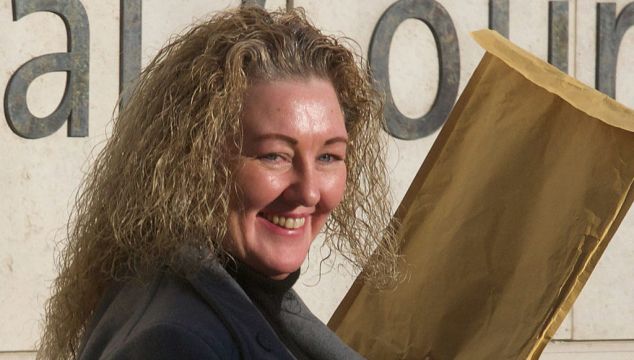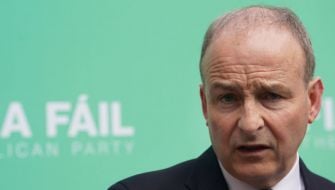Tracey Gilligan, a daughter of convicted drug dealer John Gilligan, claims her social welfare applications were refused after the Criminal Assets Bureau (CAB) unlawfully intervened.
She has issued High Court proceedings over the refusals, saying she is not involved in any criminal activity and is “at a loss” as to why she is being treated as though she is.
She argues the CAB has failed to show any evidence to the contrary and has acted unlawfully by commencing its investigation into her social welfare requests.
Describing herself as a homemaker, living in Elphin, Co Roscommon, Ms Gilligan alleges she is being treated differently because of her familial connections.
John Gilligan (71) was once one of the biggest importers of drugs into the Republic and his gang murdered crime journalist Veronica Guerin in 1996. Gilligan was charged with her murder but was acquitted. He was convicted on drugs charges and was released from prison in October 2013.
Tracey Gilligan’s proceedings ask the High Court to overturn decisions refusing to review her welfare claims via a standard mechanism.
The court should also declare the CAB erred and acted outside its jurisdiction by determining last November that there were “reasonable grounds” to infer she is engaged in criminal activity, she says.
Ms Gilligan says her disability and supplementary welfare allowance claims were referred to the Cab under its statutory remit.
She was told her applications would be refused unless she explained all personal bank transactions and details of properties she owns.
She told a social welfare bureau officer her non-residential bank account in Spain was in negative balance and said a €30,000 cash withdrawal was paid to her daughter. Cash lodgments into her account were maintenance from the father of one of her children, she told the officer.
Ms Gilligan says she further set out that at times her friends loaned her money and she repaid them. She refused to provide their names as “neither they nor I had done anything wrong”.
Her applications were disallowed last June and these decisions were upheld in November.
Another supplementary welfare allowance request was refused in September, she says, on grounds that her means did not meet the threshold and because her disability allowance had been refused over alleged failures to make the necessary disclosures.
As the decisions were made by a Cab officer, she says, she was told her appeals could not be heard via the usual procedure and would go to the Circuit Court. This breaches her procedural rights, she submits.
Ms Gilligan alleges the statutory provision allowing the Cab to investigate a benefit claim requires formal certification from the Minister for Social Protection. This did not happen here, she says, so the inquiry and decisions are unlawful.
Ms Justice Niamh Hyland on Monday found the case contained “arguable” legal grounds so she should be permitted to pursue her case.
Ms Gilligan’s senior counsel, Derek Shortall, instructed by Staunton Caulfield & Co, said his client is the daughter of a “well-known criminal”. He has been instructed that she is not involved in any criminality.
The judge granted leave and adjourned the case to next month.
Her action is against the CAB, the chief appeal officer in the social welfare office, the Minister for Social Protection, the Minister for Justice, Ireland and the Attorney General.
She wants the court to declare that the conclusions and inferences drawn by the CAB are “unsustainable” and “abhorrent to logic and common sense”. The evidence before the bureau, she says, supported a finding that she is not engaged in criminal activity, so the invocation of the Cab’s involvement was not appropriate.
Ms Gilligan’s legal papers included two High Court judgments from a 2011 case concerning nine properties the Cab suspected of being purchased with crime proceeds.
She co-owned one of the properties so was named in the proceedings, but she submitted she believed the property was bought with legitimate income.
The judge, in that case, held that money Ms Gilligan contributed to the property was not the proceeds of crime and should be reimbursed to her.







